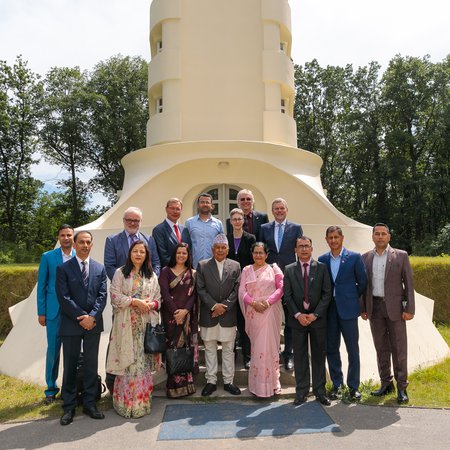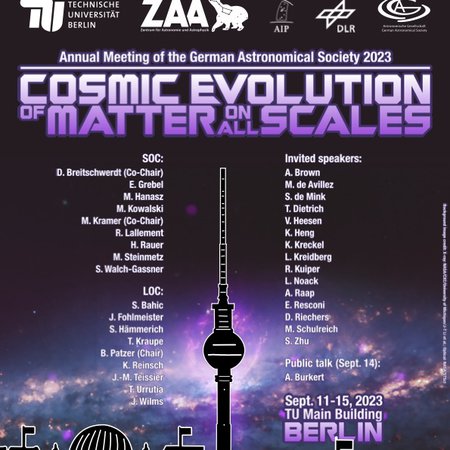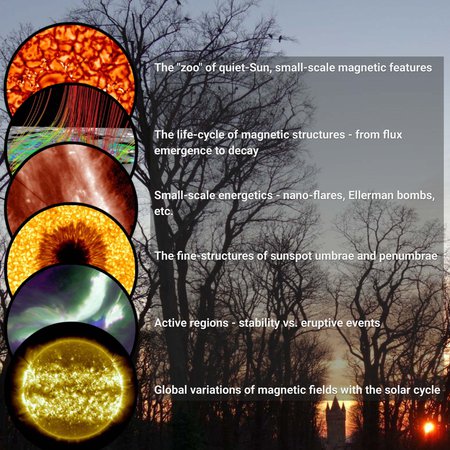550 Years of the Copernican Universe: our Place in the Cosmos

Order of the heavenly spheres by Copernicus.
Credit: Order of the heavenly spheres from Chapter 10 of Copernicus‘ De revolutionibus orbium coelestium, composition: AIP/J. FohlmeisterIn the spirit of Copernicus’s revolutionary idea and in honour of his 550th anniversary, a one-day Heraeus symposium will take place in Berlin on 10 November, focussing on our place in the universe, galaxy and solar system. The symposium is part of the Berlin Science Week 2023.
Copernicus changed astronomy, the world and humanity when he demoted Earth’s otherwise privileged position at the centre of the universe. With this simple empirically evidenced idea, Copernicus forever altered the human experience. With a wide variety of world-leading astronomers giving lectures on the state of the art in their respective fields, the symposium will celebrate Copernicus’s idea that our place in the universe, although not special anymore, is nevertheless unique. From exoplanets to the search for extra-terrestrial life, from dark matter physics to black holes across the cosmos, from how galaxies form to how they die, the symposium will honour a European who united the world in appreciation for our special place in the universe. Scientific organizers of the symposium are Professor Matthias Steinmetz, scientific chairman and spokesman for the Executive Board at the Leibniz Institute for Astrophysics Potsdam (AIP), and Dr. Noam Libeskind, head of the Cosmography and Large-Scale Structure group at AIP.
The event takes place at the Humboldt Carré Berlin, right next to Gendarmenmarkt, subsequent to the falling walls conference. It is funded by the Wilhelm and Else Heraeus Foundation, whose focus is on organising and financing event formats that serve scientific exchange. Participation is limited to 150 persons.
Programme
08:00 Registration
09:00 Matthias Steinmetz, Noam Libeskind: Welcome Words
09:30 Lisa Kaltenegger, Cornell University: Finding other Earths – the 2nd Copernican revolution
10:15 Laura Kreidberg, Max Planck Institute for Astronomy: Copernicus Revisited: Is the Earth Special?
11:00 Coffee break
11:30 Amina Helmi, University of Groningen: Unraveling the history of our home galaxy, the Milky Way
12:15 Roelof de Jong, AIP: Our place amongst others: the quest for the siblings of the Sun and the Milky Way
13:00 Lunch break
14:15 Carlos Frenk, University of Durham: The emergence and future prospects of the standard model of cosmology
15:00 Laura Baudis, University of Zurich: All the dark we cannot see – direct searches for dark matter in the Milky Way
15:45 Michael Kramer, Max Planck Institute for Radioastronomy: Unveiling the Universe: The impact of Radio Astronomy’s transformative discoveries
16:30 Coffee break
17:00 David Blaschke, University of Wroclaw: The Copernican Revolution as a change of frames
17:45 Eiichiro Komatsu, Max Planck Institute for Astrophysics: Parity Violation in Cosmology: Does the Universe distinguish between left and right?
18:30 Reception
19:30 End of Symposium
Images
Order of the heavenly spheres by Copernicus.
Big screen size [1000 x 666, 890 KB]
Original size [3717 x 2478, 7.6 MB]
Poster for the Wilhelm and Else Heraeus Symposium.
Big screen size [1000 x 1425, 1010 KB]
Original size [3241 x 4619, 3.9 MB]




